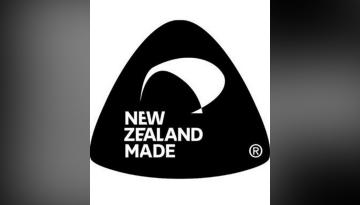
Alibaba Group has announced its 2020 11.11 Global Shopping Festival generated RMB498.2 billion (NZ$109.22 billion) in gross merchandise volume (GMV) - a 26 percent increase compared to the same timeframe in 2019.
New Zealand was the seventh top selling nation to China during the festival, Alibaba said, with infant formula, honey products and luxury pet treats being the most popular Aotearoa products sold.
The festival, also referred to as Singles' Day, is the world's biggest sales event - eclipsing Black Friday and Cyber Monday in the US. This year it spanned 11 days, bringing sellers on Alibaba's platforms 21 times as many orders by value as Amazon's two-day global Prime Day last month.
Such is its size that its performance is widely considered indicative of China's post-virus economic recovery.
Alibaba rivals JD.com Inc and Pinduoduo Inc as well as firms such as Douyin - the Chinese version of Beijing ByteDance Technology Co Ltd's TikTok - also held Singles' Day events.
"Because of COVID-19, many Chinese cannot go overseas," Vice President Liu Bo told reporters. "This actually stimulates online consumption."
And a lot of that consumption is helping Kiwi businesses.
"One of the biggest opportunities for New Zealand businesses to reach the Chinese market is the 11.11 Global Shopping Festival," said Maggie Zhou, managing director of Alibaba Group (Australia and New Zealand).
"Especially during these challenging times, we wanted to continue to provide our merchants with new innovations, valuable customer insights and trusted technology as we have done over the last 12 years.
"Merchants from Australia and New Zealand, especially new and small businesses, were delighted to have an additional opportunity to reach this market ahead of the main Festival."
Zhou said New Zealand businesses looking to do well at the festival should utilise the clean, green image of the country, which is appealing to Chinese customers.
"Also, a lot of New Zealand businesses have a philosophy about being environmentally friendly with their products and those concepts are very good for the Chinese consumer."
Alibaba gave shoppers more time to shop this year, setting primary discount days for November 1 - 3 as well as the usual November 11.
JD.com, which started promotions on November 1, said it generated 271.5 billion yuan in trade over the same period.
The performance provided little relief for Alibaba investors as they focused on the proposed anti-monopoly rules that could increase scrutiny on e-commerce marketplaces and payment services.
Alibaba Group Holding Ltd's Hong Kong-listed shares closed 9.8 percent down, in line with other Chinese tech giants. The group lost about 10 percent of its market value last week when regulators scuppered the listing of fintech affiliate Ant Group.
Its New York-listed shares fell 1.3 percent before recovering slightly to trade 0.9 percent up by 1756 GMT.
Katy Perry and mobile games
The event, launched in 2009, is usually a glitzy, single-day affair with live performances. Last year, it clocked record GMV of US$38.4 billion. This year, US singer Katy Perry appeared at Alibaba's gala, albeit via livestream.
As well as offering straightforward price cuts, the event allowed shoppers across Alibaba's platforms to play mobile games for deals, combine purchases across shops and place orders in the sale's early hours to get the best offers.
Over 340 firms, including Apple, L'Oreal and Huawei exceeded 100 million yuan in sales, with 13 brands recording GMV above 1 billion yuan, Alibaba said.
Analysts also expect this year to be a boon for luxury brands, as consumers accustomed to going overseas for high-end goods have been thwarted by coronavirus border closures.
But many shoppers had modest budgets.
A poll of Singles' Day spending by Sina Entertainment found just 4 percent of 191,000 respondents planned to splurge over 10,000 yuan, versus 43 percent who aimed to spend less than 1,000 yuan.
"The consumer and spending data we'll see coming out of 11.11 will be a terrific way to identify high-potential new products, trending brands and top categories," said Deborah Weinswig, CEO and Founder of Coresight Research, a global research firm specialising in retail and technology.
To encourage spending, livestreamers thronged pop-up film studios at a building near Alibaba's Hangzhou headquarters, touting the merits of goods on sale.
Luo Lima estimated she had been on camera promoting maternity products for 24 hours over the course of this year's sales period, versus six hours on Singles' Day two years ago.
"We stream continuously for six hours, with no break," she said.
"We start by eating a full meal, and getting in a good state of mind. We also prepare throat lozenges and vitamin drinks."
Reuters / Newshub.


